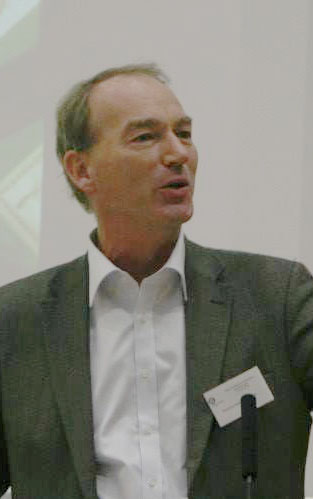Letter from the president
Dear EASA members,
Following the election of a new Executive Committee, a handover meeting between the old and new Executives was organised in Milan on 9-10 March. We also met with the local organising committee of EASA2016, were showed around the spacious Bicocca campus, and started to make plans for next year's conference. We thank the previous Executive Committee, represented in Milan by outgoing President Noel B. Salazar and outgoing Vice-President Jeanette Edwards, for having left us an organisation in excellent shape.
There is considerable continuity in the new Executive Committee. Hana Cervinkova serves her second term, now as Vice-President, and the Secretary, Alberto Corsin Jimenez, and the Treasurer, Rachael Gooberman-Hill, have agreed to continue on the Exec. The new members are Valeria Siniscalchi (Marseille), Paolo Favero (Antwerp), Niko Besnier (Amsterdam) and Thomas Hylland Eriksen (Oslo, President). In keeping with EASA traditions, the journal editor is a co-opted member of the Exec., and currently, Patrick Laviolette (Tallinn) represents Social Anthropology/Anthropologie Sociale in the Committee, the other editor being Sarah Green (Helsinki).
Our main priority in the coming two years consists in making contributions to strengthening the position of anthropology at all levels in Europe. Many departments have experienced a decline in student numbers, and the public visibility of anthropology – inside and outside academia – currently leaves a lot to be desired. The recent decision in the UK to cancel anthropology as an A Level subject (see separate item in this Newsletter) has led to strong reactions throughout the anthropological community, and indicates both the existence of a problem and a widespread desire to address it. We hope to be able to make a perceptible difference in the coming two years, hoping that we can draw on both the EASA networks and individual members in this endeavour.
The Executive Committee has identified a range of subject areas of central importance to the Association, and to the position of anthropology. These are some of the issues we will be working on:
- Early Career Anthropologists (Hana Cervinkova and Paolo Favero). This initiative, a continuation of Hana Cervinkova's work in the previous period (supported by Karolina Follis), is mainly focused on strengthening EASA's role in supporting anthropologists who are starting their professional careers.
- Network Liaison (Valeria Siniscalchi). EASA has 28 networks, nearly all of them very active, and we are looking for ways to involve them more in enhancing the position of anthropology.
- Capacity Building (Niko Besnier). Research funding is extremely competitive, both at the national and the European levels, and there is a real need to improve our ability to write successful applications and research proposals.
- Digital Agenda (Paolo Favero). The fact of communication becoming increasingly digital raises new (and recurrent) challenges regarding communication amongst ourselves in the professional community, and communication with the outside world. The digital agenda we hope to develop will range from social media to various electronic resources that may be offered to members.
- Open Access and Creative Commons (Alberto Corsín Jiménez). Alberto has led the constitution of an Open Access coalition that includes a considerable number of associations, including HAU and the Wenner-Gren Foundation, with a view to create and promote open access publications. This work continues.
- Lobbying (Thomas Hylland Eriksen). EASA is a member of ISE (Initiative for Science in Europe) and EASHH (European Alliance for Social Sciences and Humanities), two organisations operating at the European level, where anthropology needs to be present. Other lobbying initiatives are also important, not least at the national level. Suggestions are welcome.
As our work proceeds, we will report to the members about plans, activities and outcomes.
Building on an older database, we have begun updating and expanding a list of institutions that teach anthropology across Europe, and will eventually contact national associations for assistance. It should also be mentioned that the work with the physical EASA Archive, stored at the RAI, continues, largely thanks to a generous grant from the Wenner-Gren Foundation.
The Annual General Meeting (AGM) will be held in Prague on 14 October. In addition to the actual members’ meeting, we will have keynote lectures and a workshop. The theme is the situation of anthropology in Europe in the 21st century; how we are doing, what we have to offer to the world, and how we can improve and learn from experiences in other countries (see also separate item in this Newsletter).
Do not hesitate to contact us with queries or suggestions – we are at your service. And, last but not least, I hope to see as many as possible of you in Prague in October.
Yours sincerely
Thomas Hylland Eriksen







